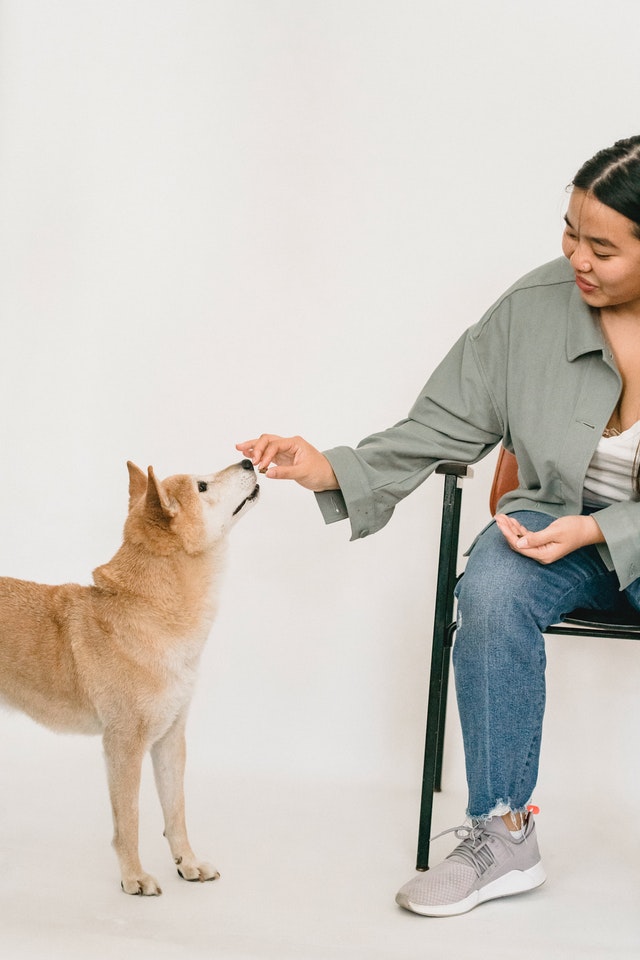FREE SHIPPING ON ALL US ORDERS
FREE SHIPPING ON ALL US ORDERS
When you first brought your new pet home, it was a blissful addition to your family.
Your love for your pet is unconditional, and it’s only natural to ensure that they have the best diet they can get.
Deciding on food within your budget is quite a feat with the never-ending aisles of products and nutrition.
There’s no lack of choices as over 1000 new pet foods are released every single year. However, what is deficient is a handbook with the essential knowledge to create the right formula.
Here are some essential tips for when picking the right pet food.
Before you begin with anything, it is crucial to lay out some groundwork.
You must know what kind of nutrition is right for your pet before you can choose the right food.
If you cannot do that, a small conversation with the previous owner or the pet shop can help.
Your research may give you some quick information on “complete” foods and “supplemental” ones.
Complete refers to an item that meets all nutrition requirements, and supplemental are additions to a regular diet to increase value.
This tells you to make sure that all the food you buy is “complete”.
Ever fed your pet large amounts of food only to see them repeatedly asking for more? This usually leaves owners baffled, wondering why their pet is still hungry. The problem lies with the serving sizes of the food you’re buying.
When picking up packets of food for your pet, don’t head straight for the larger, bulky ones to provide better nutrition for your pet.
Look at the back of the food packet, and compare the serving sizes. A smaller serving size indicates that your pet is consuming food packed with the necessary nutrition.
Buying food with smaller serving sizes not only ensures proper nutrition but is an economic lifesaver. Hit two birds with one stone by fulfilling your pet's needs and saving money at the same time.
Our pets differ from us in many ways, and one of them happens to be their smaller size and lesser developed systems.
If you buy food with tons of additional ingredients, your pet’s digestive system may be unable to promote digestion and breakdown all the products at once.
This can lead to additional consequences, where the animal is unable to breakdown all the cellular metabolites.
In this case, try to find food with a limited number of essential ingredients to allow smooth digestion and prevent hunter felt risk.
Measuring your pet's daily calorie intake is necessary for a balanced diet, and contrary to popular belief, you do not have to practice strict rules all the time.
It is essential to throw a treat to your pet to make sure that they have what they want along with what they need.
Treats should make up to 10% of your dog’s diet, but not more.
Before you purchase the pet food of your choice, it is necessary to make sure that the brand is well-reputed and healthy for your pet.
The transition towards a new pet food brand can be difficult, sometimes a new brand enters the pet food market, and it may not suit some pets.
To avoid any adverse reaction your pet might have, you can consider researching the brand online. Or, even better, you can also speak to your vet to get their opinion on it.
Another important consideration is the activity level of your pet. If your pet is highly active and burns more calories, your pet may require more nutrient-dense food.
In case your pet is not as active, speak to your veterinarian and consider putting your pet on a weight management diet.
Obesity in pets can lead to grave health issues later on.
In conclusion, we all love our pets, and it is only natural that we want the best for them. Being able to make decisions about your pet’s diet based on fact rather than marketing tactics and emotions is very important.
If you would like to read more on providing a happier and healthier life for your pet, make sure to check out some of our recent posts below.
6 Most Common Mistakes Dog Owners Make
7 Ways To Make Your Cat More Affectionate
